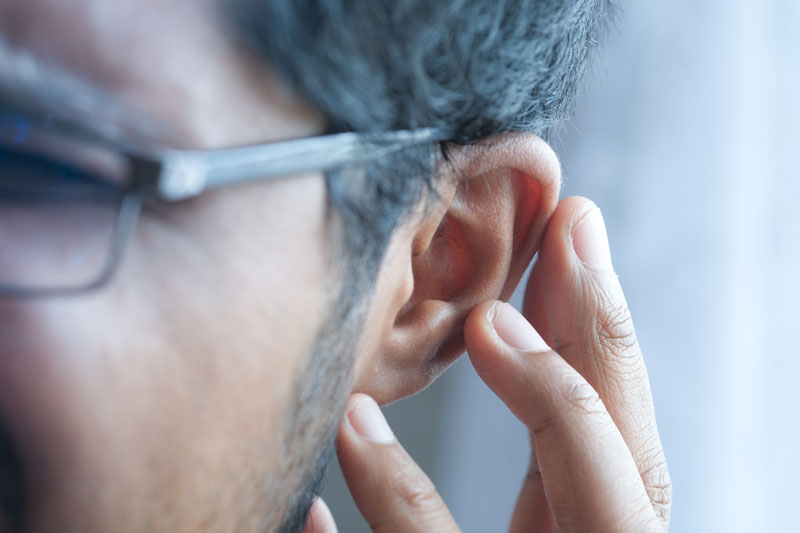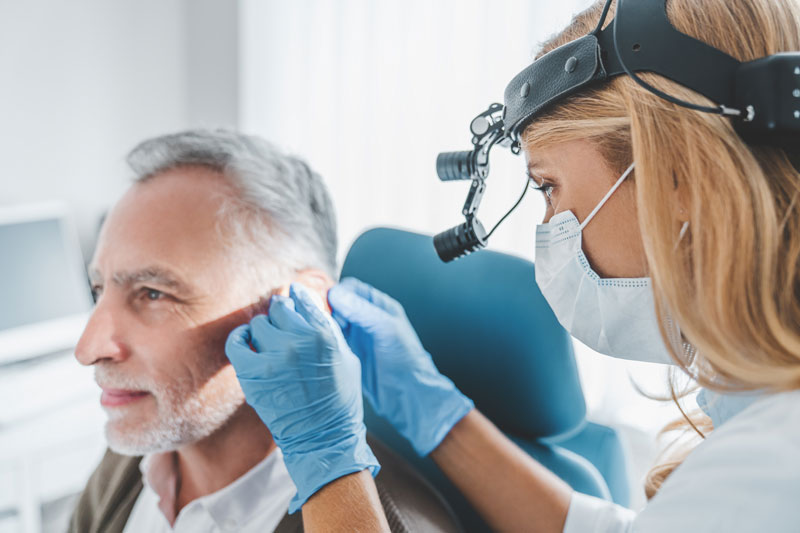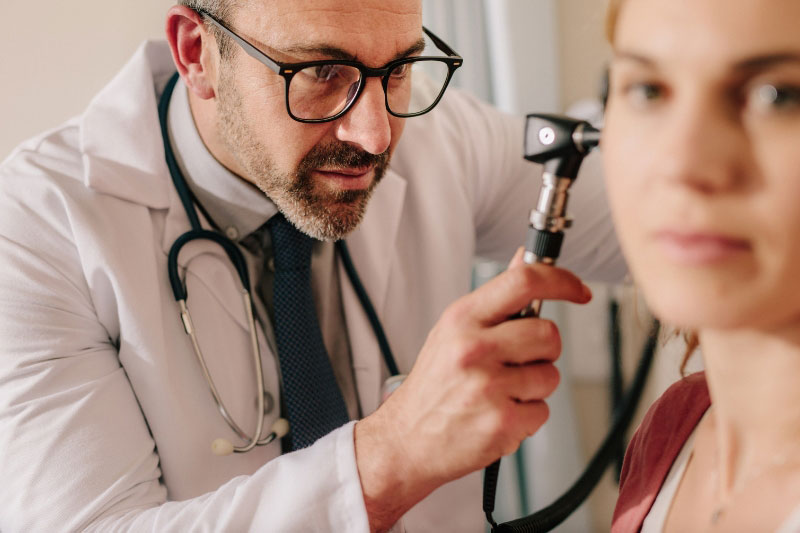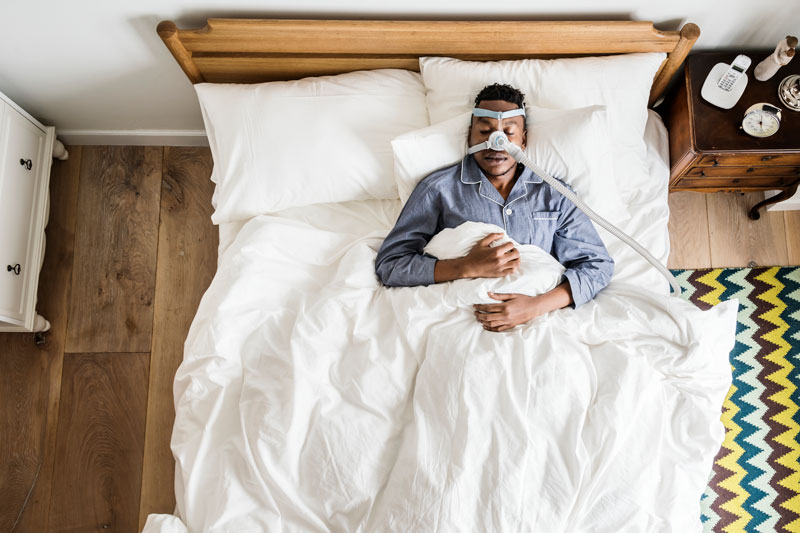What Are Otology And Neurotology?
At Ascentist Healthcare, we understand the delicate balance of an individual’s hearing and ear health, and by extension their overall quality of life. When patients come to us with ear, nose, and throat (ENT) conditions, our team of doctors specializing in otology and neurotology (also known as otolaryngologists) provide an exceptional standard of personalized care and treatment. Learn more about these medical specialties below and how Ascentist’s team goes above and beyond to help our patients find lasting relief from ENT issues.

Otology: Treating The Ears
Are you suffering from hearing loss, tinnitus (ringing in the ears), ear infections (otitis media and otitis externa), or balance disorders? These conditions and other medical issues related to the ears can make everyday life difficult to manage. The otology specialists at Ascentist Healthcare in Kansas and Missouri are experienced experts who go beyond routine care to effectively diagnose and treat hearing and balance problems for our patients.
Our physicians at Ascentist Healthcare employ the latest technology and techniques including microsurgery, reconstructive surgery, and implantable hearing devices, and are dedicated to providing the highest quality care to each and every patient. We understand the silence that accompanies hearing issues or the distress caused by constant buzzing or ringing sounds. Otologists at Ascentist Healthcare aren’t just medical practitioners; they’re listeners and empathetic caregivers.

Neurotology: Beyond The Ear
If you are experiencing hearing loss, severe dizziness, nerve pain, or other persistent symptoms that have not responded to standard ENT treatments, you may need to see a specialized doctor called a neurotologist. A neurotologist performs surgical procedures that involve the inner ear and base of the skull. But Neurotology is not just about diagnosing and treating conditions at the crossroads of the ear and brain; it’s about recognizing the profound impact such conditions can have on a patient’s daily life.
Ascentist Healthcare’s team of neurotologists trained at the prestigious House Clinic in Los Angeles and are each double board certified in Otolaryngology-Head and Neck Surgery as well as Adult and Pediatric Otology, Neurotology, and Lateral Skull Base Surgery. We provide not just medical solutions but the patience, understanding, and comfort that patients often need while undergoing treatment for these conditions.
Common Otology And Neurotology Conditions We Treat
- Hearing loss
- Otosclerosis
- Hyperacusis
- Cholesteatoma and chronic ear disease
- Eardrum perforations and ruptured eardrums
- Eustachian Tube Dysfunction
- Sudden hearing loss
- Temporal brain hernias (encephaloceles) and cerebrospinal fluid leaks
- Tumors of the ear, temporal bone, and skull base including acoustic neuromas, vestibular schwannomas, meningiomas, and carcinomas
- Superior semicircular canal dehiscence
- Facial nerve disorders
- Meniere’s disease
- Balance disorders
- Tinnitus
Common Otology And Neurotology Treatments We Offer
- Cochlear implantation
- Osseointegrated hearing devices including Osia, Bonebridge, BAHA, and Ponto
- Laser stapedotomy and/or stapedectomy
- Tympanoplasty with or without mastoidectomy
- Ossicular chain reconstruction (ear bone reconstruction)
- Meatoplasty
- Vestibular schwannoma resection
- Skull base surgery
- Encephalocele repair
- CSF leak repair
- Repair of semicircular canal dehiscence
- Gamma Knife radiosurgery
- Endolymphatic sac decompression and shunt
- Labyrinthectomy
- Vestibular nerve section
- Repair of sigmoid sinus wall abnormalities
- Lateral temporal bone resection
- Eustachian tube balloon dilation
Frequently Asked Questions
What is the difference between Otology and Neurotology?
Otology focuses on conditions related to the ear, including hearing and balance issues, ear infections, and tinnitus. Neurotology, a subspecialty of Otology, extends this focus to also include neurological conditions of the ear and surrounding structures like the skull base.
What are common symptoms that warrant a visit to an Otologist or Neurotologist?
If you experience persistent symptoms such as hearing loss, tinnitus (ringing in the ears), vertigo, or ear pain, it is advisable to consult an Ascentist Healthcare Otologist or Neurotologist for an evaluation.
What kinds of tests are used for diagnosing ear-related issues?
Common diagnostic tests include audiometry (hearing tests), tympanometry (middle ear function test), and imaging tests like CT or MRI scans. Additional specialized tests may be required for more complex conditions.
Are Otologists and Neurotologists also surgeons?
Yes, both Otologists and Neurotologists are trained in surgical procedures related to the ear and surrounding structures. Neurotologists often handle more complex surgical cases involving the skull base or the nerves related to hearing and balance.
Can hearing loss be reversed?
The ability to reverse hearing loss depends on its cause. Conductive hearing loss, often caused by earwax buildup or infections, is usually reversible. Sensorineural hearing loss, often due to aging or nerve damage, is generally permanent but can often be managed through hearing aids or cochlear implants.






